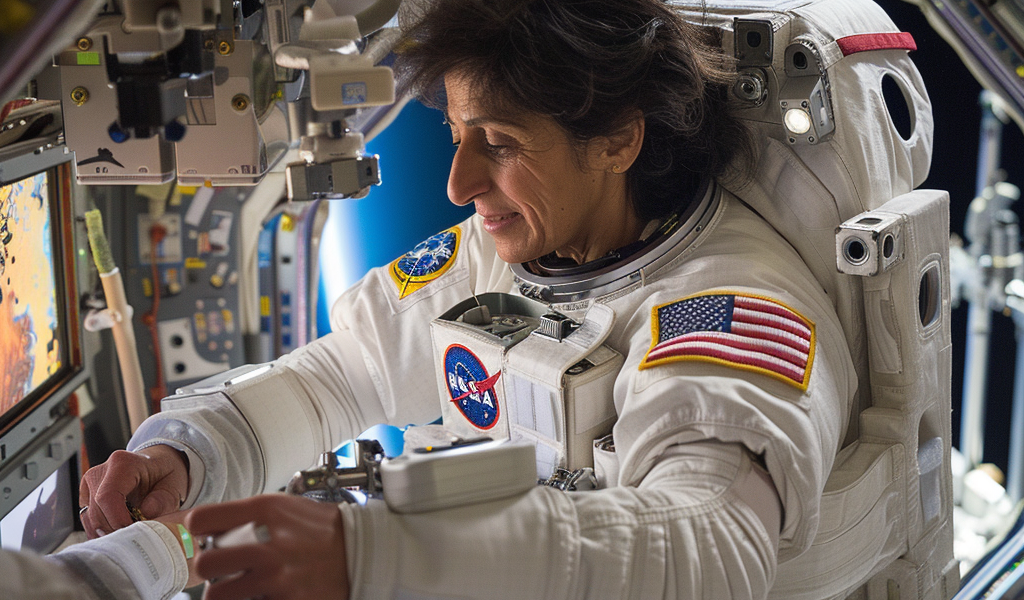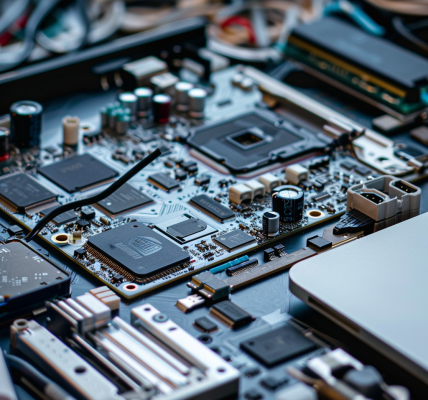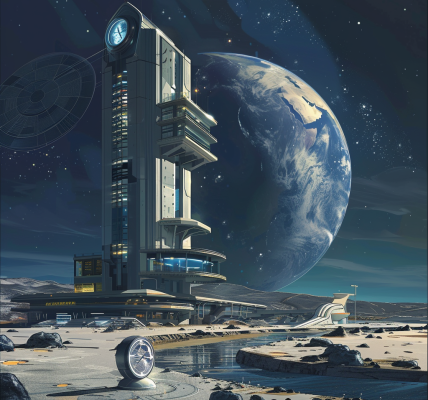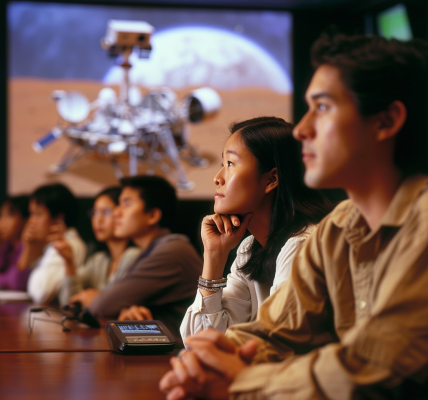International Space Station (ISS) Commander Sunita Williams is diligently preparing for her imminent return to Earth, which is slated for February 2025. As part of her extensive preparations, Williams is undergoing training in the SpaceX Dragon spacecraft and performing essential maintenance tasks, which include conducting checks on a US spacesuit in anticipation of an upcoming spacewalk.
In a recent update, it was revealed that after completing the necessary inspections of the spacesuit, Williams collaborated with NASA Flight Engineer Butch Wilmore to conduct eye examinations using the innovative Ultrasound 2 device. This advanced technology allows astronauts to scan each other’s eyes while ground-based medical professionals monitor critical aspects such as corneas, lenses, and optic nerves in real time.
Meanwhile, Wilmore has been engaged in vital tasks that include cargo transfers between the Kibo and Columbus laboratory modules, as well as installing air quality sensors in the Quest module. These efforts are crucial for maintaining a safe and habitable environment aboard the ISS.
In addition to her preparation for the return journey, Williams has been involved in groundbreaking research aboard the ISS. One of the significant areas of focus has been the study of microbes and their potential applications in space. The Rhodium Biomanufacturing 3 project investigates how variations in microbial cell growth and metabolism in microgravity can enhance the production of essential materials, medicines, and food. This research aims to reduce the reliance on transporting supplies from Earth, which is a critical consideration for long-duration space missions.
Another important line of research on the ISS involves the exploration of micro-algae. Flight Engineer Nick Hague has been at the forefront of this study, examining the potential of micro-algae to remove carbon dioxide, produce oxygen, and serve as a viable food source in spacecraft environments. Hague processed samples in the BioLab to analyze the effects of microgravity and radiation on micro-algae, contributing valuable insights into sustainable life support systems for future missions.
As part of her outreach efforts, Sunita Williams recently held a virtual session with students from Sunita Williams Elementary School located in Needham, Massachusetts. This interaction not only provided inspiration to young students but also highlighted the importance of education and engagement in STEM (Science, Technology, Engineering, and Mathematics) fields.
As the ISS crew continues to focus on maintaining equipment and ensuring optimal living conditions on board, the collaborative efforts of astronauts like Williams and Hague exemplify the dedication and innovation driving space exploration forward. Their work not only contributes to the scientific community but also paves the way for future generations of explorers.
With the anticipated return to Earth on the horizon, Sunita Williams’ ongoing contributions to science, her commitment to education, and her leadership aboard the ISS continue to inspire and captivate audiences both on Earth and beyond.





